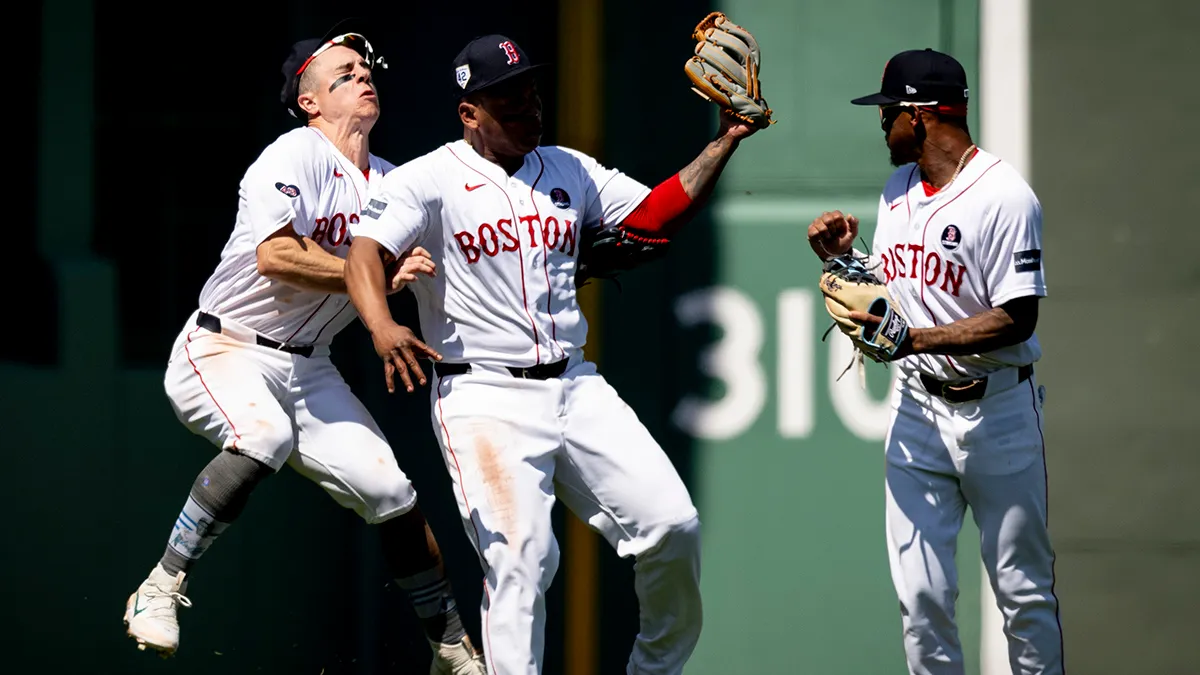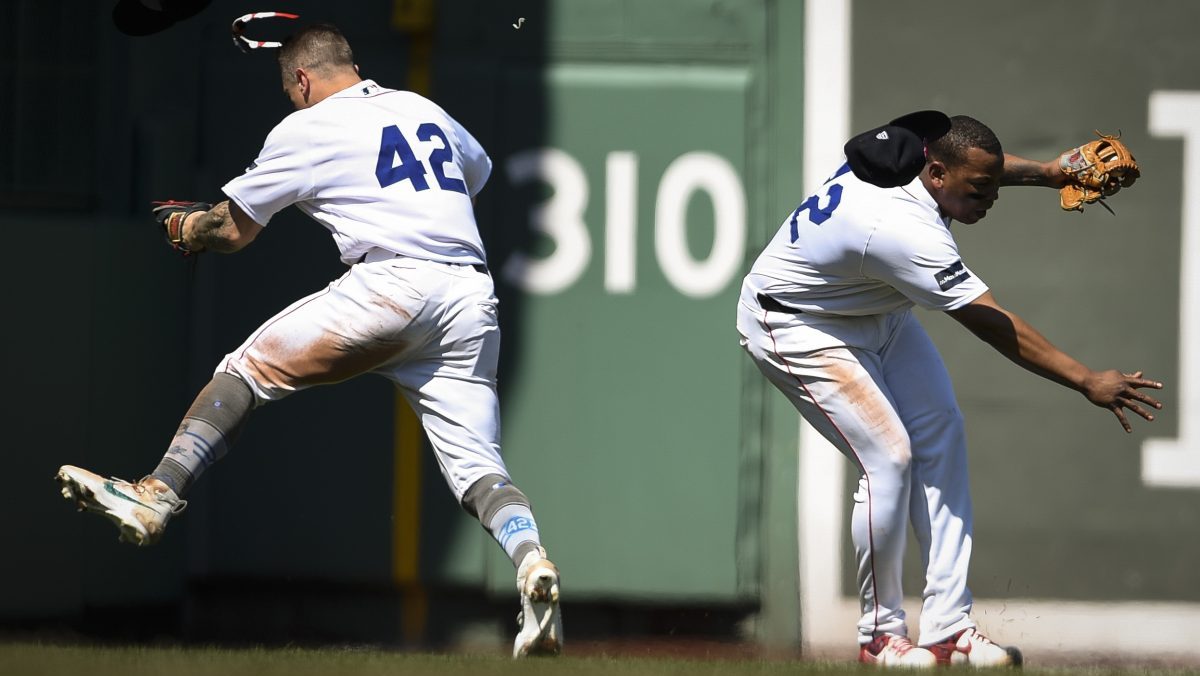HOUSTON — Has it been worth staying under the luxury tax for Red Sox ownership? Is a first-round embarrassment worth it?
It's strange the Red Sox never came out and had the courage to say it directly: this is what we’re doing. We are staying under the luxury tax threshold, our weak offense without David Ortiz be damned.
You can draw a direct line from the imminent downfall of the 2017 Sox to saving money.
Hitting isn’t all that’s off right now. Through two games of the American League Division Series, every Sox problem can be dismissed with another complaint.
MORE:
- Red Sox now seem open to starting David Price, but it's probably too late
- Mookie Betts confident he'll return for Game 3 after being pulled in Game 2
- Five thoughts from Game 2: Time to talk about the manager
Sure, the lineup is full of National League featherweights. But with pitching like this, the Sox could never go anywhere anyway. Yeah, that baserunning continues to be frightening, but they’re never on base enough for it to matter, so that’s dumb to focus on. No, Angel Hernandez’s strike zone didn’t help in the early going Friday. But when you’re playing the Superhuman Astros, you think the umpire is really going to swing things?
Boston Red Sox
“They've done everything right and we haven't done anything right,” Dustin Pedroia said Friday.
That about sums it up.
But if you want the chicken-and-the-egg discussion, the Sox’ biggest issue is easy to identify. The Astros’ greatest strength, hitting, is the Sox’ weakness.
"We can’t go out and bang like them and can’t do a lot of things they can do," Mookie Betts said Friday. "But we can do what we can do."
He needed help. This whole lineup did. Dating to last October, everyone figured a slugger was coming to Boston in Big Papi's place: Edwin Encarnacion, specifically.
The Sox went after Chris Sale instead. Not a bad choice.
But they could have done both. "Instead" didn't have to be an operative word.
They could have gotten creative and found a way to make Encarnacion’s salary work under the luxury tax threshold, if they were so concerned about staying under.
And ownership was concerned about staying under. Executives have talked about the benefits of it. But the Sox have never said, "We’re doing this, it is our goal to stay under." They always tried to leave the door to flexibility open.
Why? Why not be direct with your fan base, with the players’ union? Is there something shameful in not spending? With a team this good, maybe.
Yankees general manager Brian Cashman didn’t dance around the matter in a recent interview with the New York Post’s Joel Sherman.
“We are getting under the threshold next year,” Cashman said.
In a sense, the Sox' 2017 offense — the 2017 season — came down to money. It came down to the Sox' preference to avoid the penalties involved with exceeding the luxury tax three straight years.
Most people, the Sox’ own management included, didn’t expect the kind of offensive drop-off the Sox wound up having.
But they were dealing with young players who had breakout seasons in 2016 who did not have lengthy track records previously. It’s not stunning Mookie Betts didn’t push Mike Trout in the MVP race again. It’s not stunning Xander Bogaerts had his struggles, or Jackie Bradley Jr. That all of them would have a drop-off is harder to plan for.
But the Sox had the trade deadline to react. The thinking then was the same as it was last winter: stay under that luxury tax threshold.
Now, it’s not only money that’s at play when you exceed the threshold for multiple years. As explained previously:
The tax for spending more than $195 million this season would be 50 percent for the Red Sox on anything up to $20 million more. In dollars and cents for very wealthy owners, that’s not extreme, although it would commit the Red Sox to the same level of penalties next season.
The steeper penalties come in for teams that really blow past the threshold. In excess of $20 million, you get hit hard; and then one more tier, in excess of $40 million, you get hit the hardest.
If the Sox went above by any amount this year, their offseason could indeed be trickier — but they wouldn't be destroyed with penalties.
To sign a player who received a qualifying offer this winter, the Sox would have to give up their second and fifth highest draft selections, and also would see their international signing bonus money reduced by $1 million. If they stay under the threshold, the Sox would give up less to sign the same player.
Similarly, if the Sox lose a qualifying-offer player to another team, they don’t get as high a draft pick in return as they would if they were under the threshold. (Chris Young and Mitch Moreland probably aren't getting qualifying offers, though.)
In short: going over the threshold by $20 million or less doesn't bring the hammer down.
There are worthy reasons to stay under the threshold. But there are also reasons to stay over. And if you're going to stay under, at least get creative enough to cover up for the lack of spending.
The Sox' greatest stumble this year might have been over a pile of cash.


